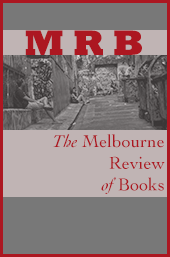 I’ve been doing a lot of thinking about characters and characterisation recently. It’s something that I’ve always felt has been something of a weak point in my own writing and it’s something that I’ve been focusing on trying to improve. One of the things that I’ve been thinking about a lot is how characters are defined not just by their own personal foibles, quirks, traits, preferences and personality, but by their relationships with other people in the story and their relationship with social groups, institutions, social rules, laws and traditions. I think that in genre fiction especially, the background of societal setting is often disregarded and this leaves the characters and the world feeling somehow ‘thin’ and ‘tepid’. To start off I started putting together a list of ‘social settings’ to help me think this through.
I’ve been doing a lot of thinking about characters and characterisation recently. It’s something that I’ve always felt has been something of a weak point in my own writing and it’s something that I’ve been focusing on trying to improve. One of the things that I’ve been thinking about a lot is how characters are defined not just by their own personal foibles, quirks, traits, preferences and personality, but by their relationships with other people in the story and their relationship with social groups, institutions, social rules, laws and traditions. I think that in genre fiction especially, the background of societal setting is often disregarded and this leaves the characters and the world feeling somehow ‘thin’ and ‘tepid’. To start off I started putting together a list of ‘social settings’ to help me think this through.
By ‘social setting’ I mean a setting in which there are clear rules and expectations, alliances, enemies, feuds and so on. Using this definition the ‘society’ that Jane Austin’s characters move within would be a social setting, but so would Hogwarts or the band of pickpockets that Oliver Twist gets himself entangled with.
My list is not intended to be exhaustive. You might be able to think of some yourself. It was really just a starting place to help me think about what social settings a book or parts of a book might occur within and how that might alter or change the story.
A list in no particular order:
- SCHOOL: A classic institution where strangers are thrown together to learn things and need to make friends and alliances as well as learn the rules. Schools, even the non-magical, non-lethal games varieties are intense experiences. It’s easy to forget for example that Jane Eyre spends some time in school before she moves onto Society.
- SOCIETY: In the sense of high society – full of rules, expectations, snobbery, slights and reputations.
- MEAN STREETS: Thieves, street urchins, gangs and street crews.
- MILITARY: Hard to to well unless you have military experience personally. A mercenary company would fall into this category. Possibly any band or crew with a purpose could fall into this slot, so that pirate crews, outlaw bands, police, town guard or heist crews might all fit into this rough sphere?
- CLUB: Hobby clubs can be nests of politics and infighting. Stories set into something like the Royal Society would be another example. Chesterton’s Club of Queer Trades is one example, as is the gentleman’s club at the start of Around the World in Eighty Days.
- SMALL TOWN: Or at least a community with a small town mentality where everyone knows everyone else’s business. Society in a stifling, claustrophobic setting. A lot of modern literary fiction is actually set in a ‘small town’ regardless of where the story takes place – suburbia becomes a small town once everyone is in everyone else’s business. J.K. Rowling’s The Casual Vacancy falls neatly into this category too.
- GUILD: An archaic professional association, order, official and non-secretive religious group or similar. A story set in an order of magicians (either stage or actual magic) would fall into this category. Stories set in monasteries might fall here.
- COURT: Much like Society, above, but perhaps even more intense and deadly by virtue of proximity to power.
- MERRY BAND: Possibly outlaw bands, pirate crews, merchant ships, troops of tinkers, musicians and gypsies should fall out into another category of loosely associated but allied groups with a purpose (usually making a profit).
- VENTURE: I’m separating modern commercial ventures from guilds because they have different rules and expectations. A law firm would be a venture, but the trading company in Heart of Darkness probably falls into the realm of Venture rather than Guild too. I think I would slot modern government into Venture as well, so that The Ministry of Magic is a venture rather than a Guild.
- CLANDESTINE: Secret societies, cults, septs, sects and the like. The anarchist’s association in The Man Who Was Thursday would fall into this grouping.
Of course one thing to be aware of is that stories can start in one social setting, move to another, and another and maybe circle back again (or never quite leave the first setting behind entirely). It isn’t the case that a story should have one social setting and many good stories move through several.


Pingback: The Shadows of Us | Melbourne Review of Books